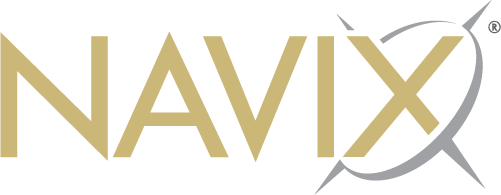2015 Q1 Market Commentary
Things are not always as they seem; the first appearance deceives many.–Phaedrus
Success tempts many to their ruin.–Phaedrus
By: Stephen Griner, Chief Investment Officer
I drive a Ford F-150. For the past several years I have enjoyed driving it for all but one moment every week…you guessed it, the weekly gas station visit. For those not familiar with fuel capacities in pickup trucks, they can be rather large. My truck specifically, holds 36 gallons. At close to $4.00 per gallon of regular unleaded, a fill up costs well over $100 dollars…per week. This past week, I filled up for $1.79 per gallon. This translates to a savings of almost $80 per week, $320 per month, and over $4,000 per year. While my recent financial windfall may be extreme (most of us don’t have 36 gallon fuel tanks) a similar story is playing out across the nation.
Oil prices dominated headlines the last half of 2014 as they fell almost 50% from June’s level of $102 per barrel. Why is this happening, what is the likely impact, and why do we care? First, why are prices falling? U.S. crude production surpassed expectations in 2014. In addition, some of the temporary “Arab Spring” shutdowns from 2012-2013 reversed in 2014. Finally, when OPEC met formally on Thanksgiving Day, the Saudis officially and definitively said they would not cut back production to hold up the price of oil. This was the final straw, and the oil markets collapsed. For all intents and purposes the Saudi message to the world was the OPEC cartel is finished.
These events resulted in an increasing supply of oil, and thus falling prices as demand fails to keep pace. Why would the Saudis keep production high and force prices below the $90 per barrel target they have defended the past several years? The general consensus indicates prices over $90 per barrel lead to an ever increasing supply of North American oil, and require the Saudis to continuously reduce their production to keep markets balanced. The result over just the next 3-5 years would have been a massive reduction in Saudi output and market share – possibly in the range of 30-50%. So, in essence, the Saudis are forcing prices low to drive producers out of the market and maintain their market share. The likely outcome of this action is a prolonged period of low oil prices. Low oil prices, while having a negative impact on certain sectors, will generally produce positive results for the U.S. economy.
This brings us back to my opening anecdote. For every dollar not spent on fuel, those dollars can be spent on something else. Personal consumption represents 70% of the U.S. economy as measured by Gross Domestic Product (GDP.) With over 100 million households owning one or more vehicles, we believe falling oil prices have the ability to move beyond short term stock market shocks and add positive momentum to the economy as a whole.
This brings us to a review of stock and bond markets for 2014. The headline indexes for stocks and bonds (S&P 500, Barclays Aggregate) produced strong returns relative to everything else. As such, 2014 was a good year to avoid performance envy, not be swayed by first impressions, and reduce the temptation to load up on U.S. stocks. December saw the S&P 500 (a broad measure of U.S. stock market performance) close up 13.69%, after making headlines for setting all-time highs. In similar fashion, the Barclays Aggregate (a broad measure of U.S. bond market performance) closed up 5.97%. Smaller company US stocks grew less slowly, only gaining 4.89% as measured by the Russell 2000. International markets, as measured by the MSCI ACWI ex US, declined 3.44%. Other asset classes such as commodities, international bonds, and emerging markets also produced flat to negative returns.
What does this mean to you? If you are invested in an appropriately diversified portfolio, as our clients are, you may be disappointed with the performance of your portfolio versus the headlines. It may be very tempting for investors to want to add more large cap U.S. stock exposure in light of the strong recent headlines. However, in our opinion adding more large cap exposure decreases diversification and inevitably increases the risk in the portfolio. A natural question is, why hold these other assets classes? The core tenant of diversification is to hold non-correlated assets. “Non-correlation” is a fancy way of saying own assets that don’t go up and down at the same time. This results in any given year with some assets finishing up and some finishing down. Over the long run the strategy yields a smoother ride to your long term goals. Over the short run it can result in performance below that reported on the nightly news. We saw this happen in 2014.
As we sit down and review your portfolio over the coming weeks and months we will cover 2014 in depth. I encourage you to ask questions and seek to understand the strategy your portfolio is following. As always, we believe appropriate diversification and a long term perspective are keys to investment success.
The views and opinions expressed are of Persium Advisors, LLC. This commentary is provided for educational purposes only and should not be construed as investment advice. Persium Advisors is an investment advisor firm located in Atlanta, GA.
ph 678.322.3000 / fax 678.322.3059
Persium Group, LLC / 2100 Riveredge Parkway, Suite 1230 / Atlanta, GA 30328
Persium Group consists of three teams: Persium Advisors — wealth management for business owners and other investors, NAVIX — exit planning for business owners, and CoVerity — serving the needs of retirement plan committees.
The Persium Group, formerly known as White Horse, is an independently owned and operated firm that was founded in 2004. In 2010, White Horse Advisors, LLC registered with the Securities and Exchange Commission as an investment adviser allowing us to operate in a product neutral, fee-only investment environment.



